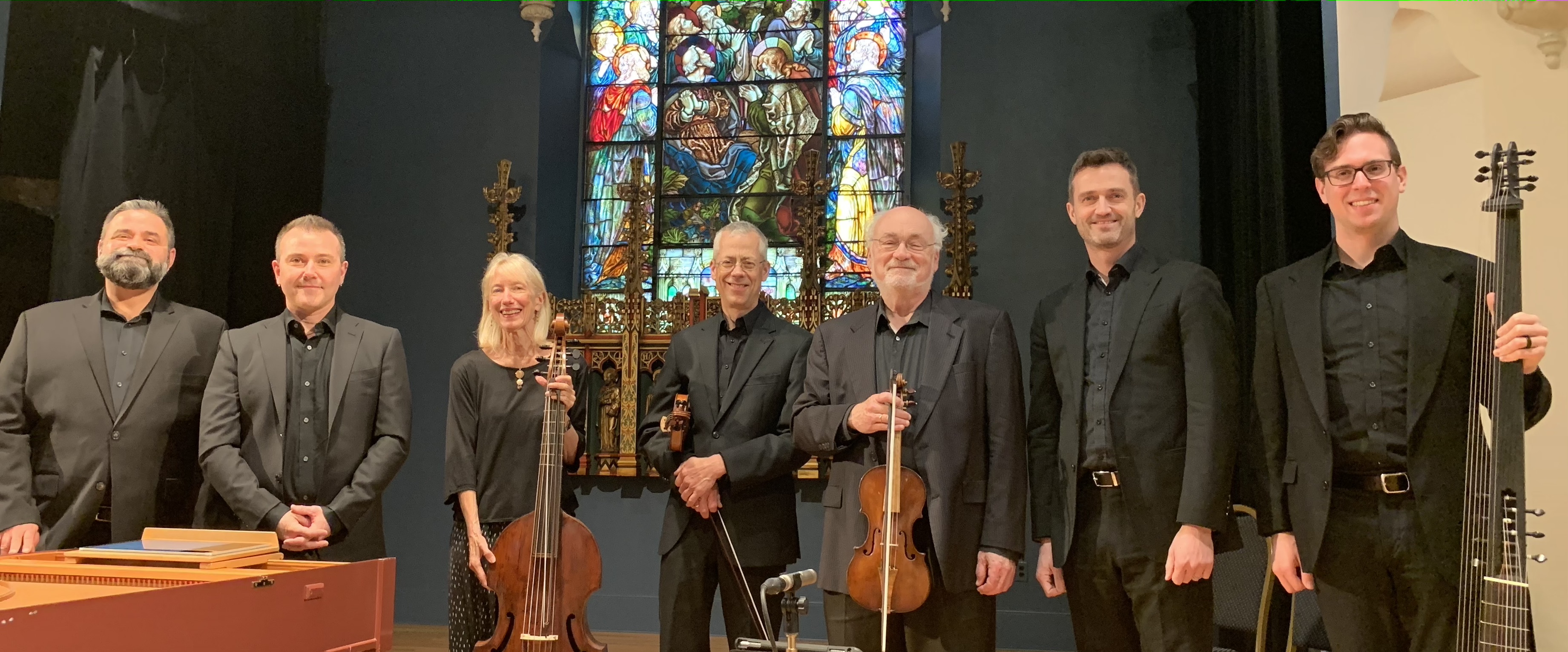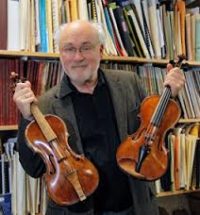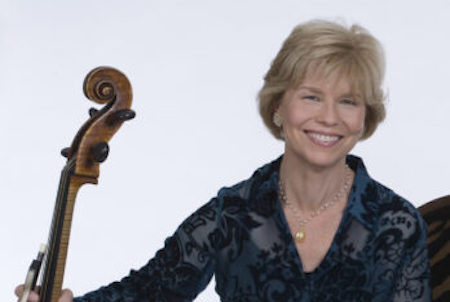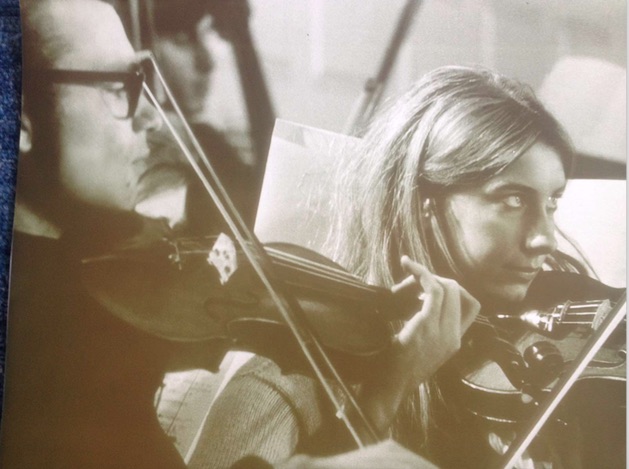
They took a stand, and that was that.
It was in 1968, while sharing a music stand at Yale University, that Daniel Stepner and Laura Jeppesen met, and a musical marriage took root for many future decades. Since the early 1990s, Dan and Laura have anchored the Aston Magna Music Festival’s early music – Dan on his baroque violin, and Laura on her viola da gamba. They perform together with this weekend with ‘Mostly Monteverdi,’ with other Aston Magna musicians.
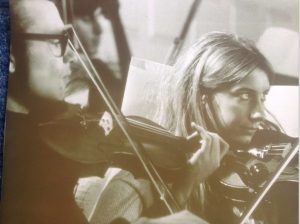 Laura: I have always had an intense relationship with music. No matter the genre—I just loved listening to music, be it Elvis Presley or David Oistrakh. When I look back it seems music was more essential to me growing up than to most everyone I knew.
Laura: I have always had an intense relationship with music. No matter the genre—I just loved listening to music, be it Elvis Presley or David Oistrakh. When I look back it seems music was more essential to me growing up than to most everyone I knew.
In my grade school years, I started with piano lessons and then switched to violin. Playing music became something that defined me and gave me my sense of identity. Years later I watched the same thing happen to my son, whose entire existence seems to have been determined by music. Ben, 27, is a composer and jazz pianist and he has always had his own musical language.
I discovered early music as a graduate student. Dan and I were both violinists at Yale when we met. Yale had a significant collection of early instruments and I first played a viola da gamba there for an academic history project. I found that I felt a special rapport with the gamba
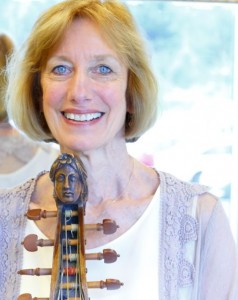
immediately. Its voice was so intimate, so personal. I still watch this relationship happen, by the way, when students begin to study gamba with me. There is something about the way the sound draws one in. It is a seductive instrument and people just fall in love with it. I am often surprised by the number of ‘closet gambists’ among my colleagues—musicians known for their expertise as harpsichordists, flutists, violinists who have a private life playing viol consort music in their off hours. My favorite kind of day is when I am at home playing my viola da gamba, looking out at my garden at the birds and the squirrels. That is when I feel in perfect harmony with the world.
Dan: I began the violin at age 8, but began to take it much more seriously at 18, when my teacher at Northwestern University, Steven Staryk, showed me ways I could accomplish much more with a certain sort of practice. The “puzzle” of solving technical problems, and the beauty of the violin’s singing quality both began to grab me.
Music had always been central in my life — my parents were both musicians (my father a bass player and conductor of school orchestras and bands; my mother a serious pianist). I listened to a wide variety of classical music constantly, so music always seemed a natural path. My parents were careful to warn me of the pitfalls of a musical career – in terms of salary and upward mobility — but when I “declared,” they were very supportive.
There were two particularly helpful mentors among my violin teachers: The first was Staryk, then concertmaster of the Chicago Symphony. He had a baroque bow and let me try it — my first brush with period instruments. The second was Broadus Erle, founder of both the New Music Qua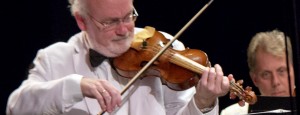 rtet and the Yale Quartet. A third major influence was Nadia Boulanger, with whom I coached for two summers in France.
rtet and the Yale Quartet. A third major influence was Nadia Boulanger, with whom I coached for two summers in France.
I had always loved Bach and Vivaldi, but was unaware of the breadth of early music repertoire until I started playing period instruments and delving into its rich literature. Fortunately, this was at a time when musicologists were re-discovering and republishing forgotten musical literature; furthermore, I was lucky to have access to original instruments from the Collection of Musical Instruments at Yale, where I did graduate work. In retrospect, it is amazing to think that they allowed us to just take these instruments home for practice! I eventually started my own collection of bows and violins.
I didn’t have specific professional goals, but I began to play professionally and took advantage of opportunities as they arose. While at Yale I was concertmaster of the New Haven Symphony and when I moved to Boston I became more involved with early music. With harpsichordist John Gibbons, Laura and I became known as the Boston Museum Trio – we anchored a concert series at the Museum of Fine Arts, often using instruments from its collection. All three of us were founding members of Frans Brüggen’s Orchestra of the Eighteenth Century, based in Amsterdam. For the first dozen years of our marriage we were on tour a lot. I have always had a very varied musical life because I didn’t want to specialize exclusively in any one area. There is a huge repertory for the violin from around 1610 to the present. I cannot say that I love the music of one period any more than another and I feel fortunate to have had consistent opportunities to enjoy the entire breadth of the literature for the violin.
Although Laura specializes in early music, we overlap in our professional lives playing music of the seventeenth and eighteenth centuries. Boston has been a wonderful place for us and we feel lucky to have been able to earn our living as musicians. We are now watching our son enter the work force as a keyboard player, and although his repertory is vastly different from ours, the rewards are the similar. To experience the words “work” and “play” as synonymous is a very great privilege.
Visit the Aston Magna artists page to read the professional bios of Dan Stepner and Laura Jeppesen.

